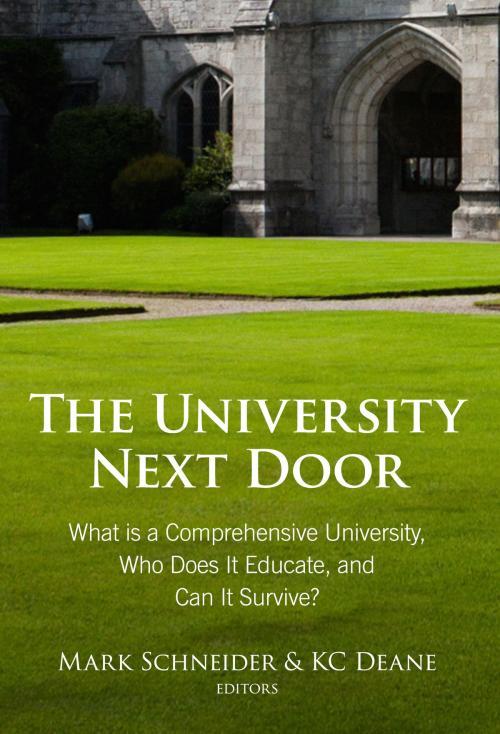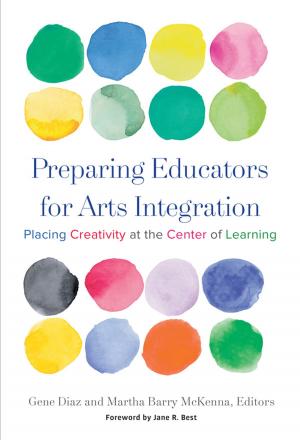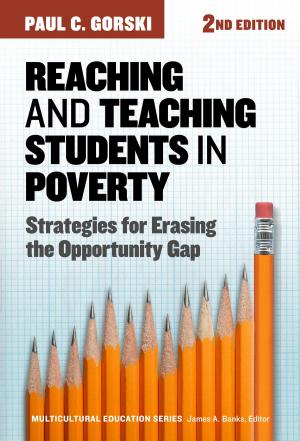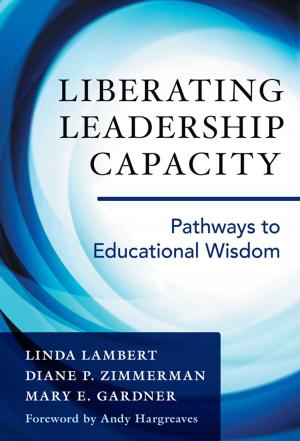The University Next Door
What Is a Comprehensive University, Who Does it Educate, and Can It Survive?
Nonfiction, Reference & Language, Education & Teaching, Higher Education, Administration| Author: | Mark Schneider, KC Deane | ISBN: | 9780807773420 |
| Publisher: | Teachers College Press | Publication: | December 15, 2009 |
| Imprint: | Language: | English |
| Author: | Mark Schneider, KC Deane |
| ISBN: | 9780807773420 |
| Publisher: | Teachers College Press |
| Publication: | December 15, 2009 |
| Imprint: | |
| Language: | English |
The challenges public comprehensive universities face today are expanding—they have been challenged to enroll and graduate more students, adopt new technologies that lower cost without sacrificing quality, and align program and curricular offerings with the skills that employers require. While these universities have a long history of adapting to change, today’s environment will likely test the capabilities of even the most adaptive institutions. This volume assembles a team of experts from a variety of disciplines to examine both the history of the comprehensive university and what lies ahead. Overall, the book grapples with such questions as: How do these institutions adapt to serve the growing population of non-traditional students? How well do they prepare graduates for the labor market? Can partnerships between community colleges and comprehensive universities bolster student success?
The University Next Door draws much-needed attention to a set of institutions that has historically received little notice, yet play an important role in meeting our new attainment goals and helping the American economy grow.
Book Features:
- Examines the role of comprehensive universities from start to finish—their history and future.
- Uses empirical analysis to explore complex questions about which students choose these universities and why.
- Explores how these institutions might struggle under a federal ratings system such as the one proposed by President Obama.
- Discusses how these institutions can better monitor the needs of the economy and better educate students to fill those needs.
- Provides recommendations to inform future decisions about higher education policy.
“In chapter after chapter, the contributors critically assess whether comprehensive universities can respond to the nation's ambitious call to action. This compelling volume is a valuable starting point for anybody concerned about the future of the institutions that help define American higher education as we know it today.”
—Richard G. Rhoda, executive director, Tennessee Higher Education Commission
“Schneider/Deane provides much-needed illumination on the U.S. higher education sector that will play a critical role in meeting the nation’s educational, workforce, and economic goals. It will serve as a valuable resource for all stakeholders who seek to affect positive change in policy and practice at public comprehensive universities.”
—Daniel J. Hurley, associate vice president for government relations and state policy, American Association of State Colleges and Universities
The challenges public comprehensive universities face today are expanding—they have been challenged to enroll and graduate more students, adopt new technologies that lower cost without sacrificing quality, and align program and curricular offerings with the skills that employers require. While these universities have a long history of adapting to change, today’s environment will likely test the capabilities of even the most adaptive institutions. This volume assembles a team of experts from a variety of disciplines to examine both the history of the comprehensive university and what lies ahead. Overall, the book grapples with such questions as: How do these institutions adapt to serve the growing population of non-traditional students? How well do they prepare graduates for the labor market? Can partnerships between community colleges and comprehensive universities bolster student success?
The University Next Door draws much-needed attention to a set of institutions that has historically received little notice, yet play an important role in meeting our new attainment goals and helping the American economy grow.
Book Features:
- Examines the role of comprehensive universities from start to finish—their history and future.
- Uses empirical analysis to explore complex questions about which students choose these universities and why.
- Explores how these institutions might struggle under a federal ratings system such as the one proposed by President Obama.
- Discusses how these institutions can better monitor the needs of the economy and better educate students to fill those needs.
- Provides recommendations to inform future decisions about higher education policy.
“In chapter after chapter, the contributors critically assess whether comprehensive universities can respond to the nation's ambitious call to action. This compelling volume is a valuable starting point for anybody concerned about the future of the institutions that help define American higher education as we know it today.”
—Richard G. Rhoda, executive director, Tennessee Higher Education Commission
“Schneider/Deane provides much-needed illumination on the U.S. higher education sector that will play a critical role in meeting the nation’s educational, workforce, and economic goals. It will serve as a valuable resource for all stakeholders who seek to affect positive change in policy and practice at public comprehensive universities.”
—Daniel J. Hurley, associate vice president for government relations and state policy, American Association of State Colleges and Universities















